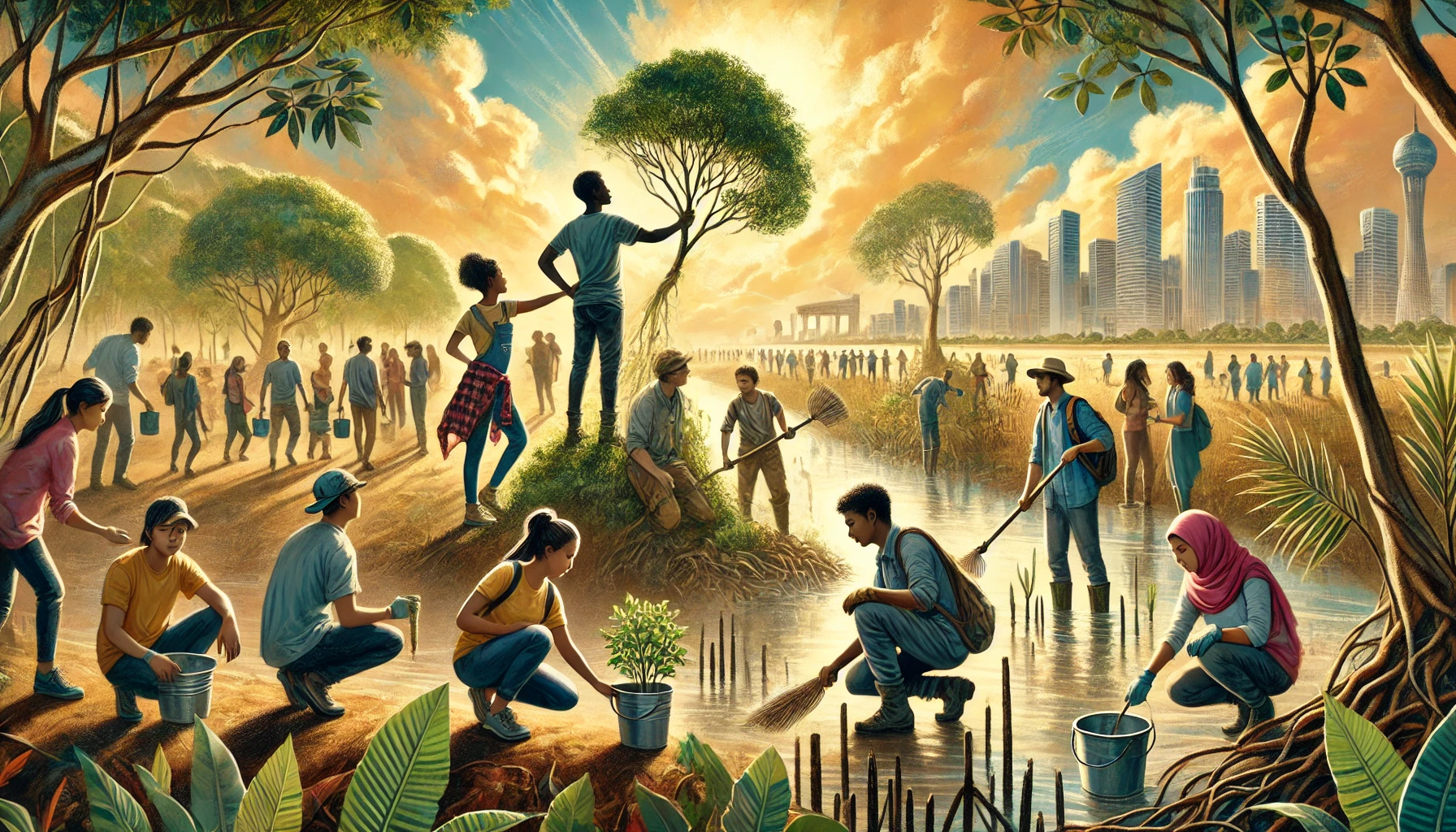AfDB Approves Over $31M to Boost Climate Resilience in Four African Nations
Approved between November and December 2024, the funding will drive innovative projects selected during CAW’s inaugural call for proposals.

The Board of Directors of the African Development Bank Group has sanctioned over $31 million in funding through its African Climate Action Window (CAW) to bolster climate resilience efforts in Sierra Leone, South Sudan, Djibouti, and Madagascar. This initiative is part of the Bank’s broader objective to mobilize $4 billion by 2025 under the African Development Fund’s concessional framework to expedite climate finance access, support co-financing, and prioritize vulnerable, fragile, and conflict-affected countries.
Approved between November and December 2024, the funding will drive innovative projects selected during CAW’s inaugural call for proposals. A total of 41 climate adaptation projects, collectively valued at $321.75 million, were chosen in the initial funding round. These projects are designed to address climate change, improve livelihoods for vulnerable communities—especially women and youth—and enhance climate information systems.
An additional $28.13 million in climate co-financing from sources such as the Green Climate Fund will supplement the approved funding.
Country-Specific Initiatives:
-
Sierra Leone: The Freetown WASH and Aquatic Environment Revamping Project will receive $5 million to enhance sustainable water, sanitation, and hygiene (WASH) services. The project will also introduce modern hydrometeorological observation networks and early warning systems, benefiting approximately 700,000 people. A significant component includes the development of an interactive flood map for the Freetown Peninsula to aid disaster risk reduction.
-
South Sudan: The Climate Resilient Agri-Food Systems Transformation Programme has been allocated $9.4 million to promote climate-adaptive agricultural technologies and improve food and nutritional security. The program includes rehabilitating 1,200 hectares of land, enhancing rural infrastructure, and providing training to about 8,000 individuals. The initiative is expected to reduce CO2 emissions by 720,000 tonnes and create 180,000 direct jobs, focusing on women and youth. Additionally, 90,000 farmers will be educated on climate-smart farming practices.
-
Djibouti: The Youth Entrepreneurship for Climate Change Adaptation Project will benefit from $7.5 million aimed at strengthening agricultural resilience, particularly in horticulture and pastoralism. The project aims to increase the self-sufficiency rate of selected market garden crops from 10% to 30%. It is projected to generate approximately 3,500 permanent jobs, with a significant portion for youth and women, and create 200 new small and medium enterprises.
-
Madagascar: The Climate Resilience through Park Biodiversity Preservation Project will receive $9.4 million to conserve biodiversity in Lokobe, Nozy Hara, and Andringitra national parks. The project will restore 100% of these protected areas, sequestering 10 million tonnes of CO2 and creating 1,500 green jobs, 500 of which are reserved for women. It will also enhance agricultural production in adjacent communities, adding 24,000 tonnes of rice and 14,000 tonnes of other crops. Furthermore, 24,000 farmers will receive irrigation training, and 12 women-led farmers' groups will be provided with agricultural kits.
Leadership Perspectives:
Dr. Kevin Kariuki, Vice President for Power, Energy, Climate Change, and Green Growth at the African Development Bank, remarked, "The Climate Action Window is catalyzing transformative solutions in Africa’s most climate-vulnerable regions. From strengthening water security in Sierra Leone to advancing youth-led agribusiness in Djibouti and restoring biodiversity in Madagascar, these initiatives go beyond adaptation—they drive prosperity. Through investments, we are equipping communities to withstand climate shocks, create jobs, and accelerate inclusive economic growth."
Prof. Anthony Nyong, the Bank’s Director for Climate Change and Green Growth, added, "These initiatives are not just about responding to climate change—they empower communities to take control of their own futures. They show that adaptation finance can and must be directed to those vulnerable communities that need it most. The Climate Action Window is more than just a funding mechanism—it's a lifeline for communities facing the harsh realities of climate change every day."
Following this initial round of funding, the CAW has launched two additional calls focusing on mitigation efforts and technical assistance, respectively.










